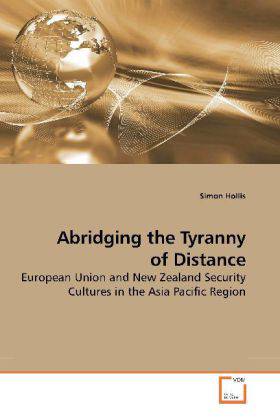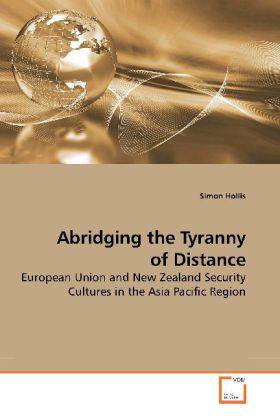
- Afhalen na 1 uur in een winkel met voorraad
- Gratis thuislevering in België vanaf € 30
- Ruim aanbod met 7 miljoen producten
- Afhalen na 1 uur in een winkel met voorraad
- Gratis thuislevering in België vanaf € 30
- Ruim aanbod met 7 miljoen producten
Zoeken
Abridging the Tyranny of Distance
European Union and New Zealand Security Cultures in the Asia Pacific Region
Simon Hollis
Paperback | Engels
€ 67,45
+ 134 punten
Omschrijving
A growing awareness and need for collective approaches to global security threats call for greater regional solutions. Strategic challenges such as terrorism, natural disasters and nuclear proliferation pervade regions and transcend national borders. This not only accentuates a country s vulnerability, but also challenges its ability to meet future crises alone. The Asia Pacific security environment is not exempt from these types of threats. Amongst a myriad of regional security consultations, sub-regional security cooperation between the European Union and New Zealand aims to administer an effective contribution to stability in South East Asia and the Pacific. This book explores the volume and type of this security dialogue through a constructivist and regionalist framework; the security identities of the EU and New Zealand are investigated and compared in order to elucidate the processes and the function of this consultation. The analysis will be useful for practitioners and scholars who wish to become more familiar with the security cultures of the EU, New Zealand and the Asia Pacific Region.
Specificaties
Betrokkenen
- Auteur(s):
- Uitgeverij:
Inhoud
- Aantal bladzijden:
- 192
- Taal:
- Engels
Eigenschappen
- Productcode (EAN):
- 9783639196696
- Uitvoering:
- Paperback
- Afmetingen:
- 220

Alleen bij Standaard Boekhandel
+ 134 punten op je klantenkaart van Standaard Boekhandel
Beoordelingen
We publiceren alleen reviews die voldoen aan de voorwaarden voor reviews. Bekijk onze voorwaarden voor reviews.








